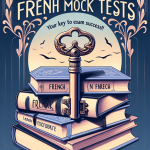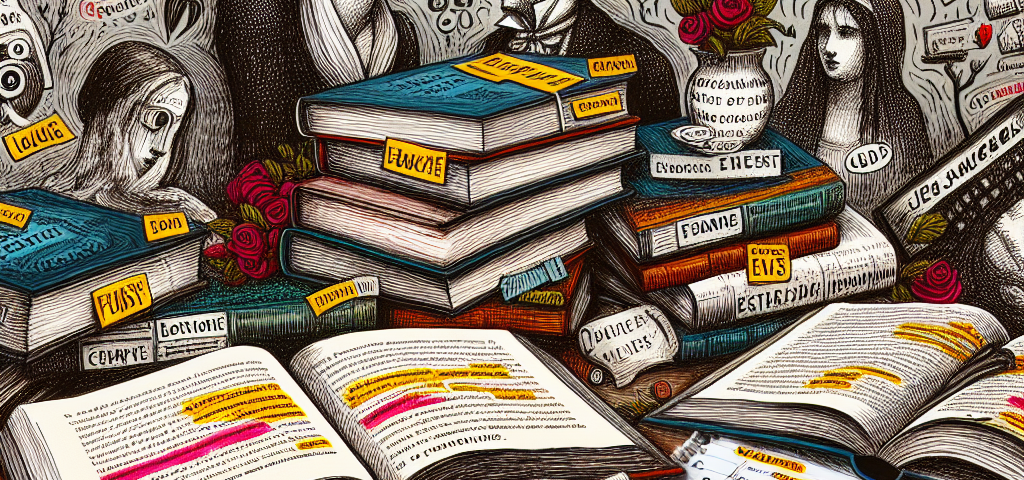
Success Stories: How Tuition Transformed My GCSE French Journey
May 28, 2025
French Mock Tests: Your Key to Exam Success!
May 28, 2025
Studying A-Level French literature offers students a profound opportunity to immerse themselves in the cultural, historical, and philosophical nuances of French-speaking worlds. With a rich tapestry of texts ranging from classic to contemporary literature, A-Level candidates must navigate intricate themes and stylistic elements to understand the significance of the works they study. This guide outlines key themes, essential texts, and useful analytical strategies that will enhance your literary exploration.
Key Themes in French Literature
1. Identity and Alienation
Identity is a central theme across many French literary works, exploring personal, social, and national identities. Authors like Albert Camus in L’Étranger grapple with existential questions of belonging and alienation, while works by Marguerite Duras, such as Moderato Cantabile, delve into female identity and societal constraints. Use comparative analysis to explore how different authors present varying aspects of identity, both aligned and opposing.
2. Existentialism and Absurdism
Existential philosophy heavily influences French literature, particularly in the mid-20th century. Jean-Paul Sartre and his contemporaries explore the absurdity of life and human freedom. Sartre’s La Nausée and Camus’s Le Mythe de Sisyphe present life’s inherent challenges and how characters confront their existence. Discussing key philosophical concepts can provide deeper insight into character motivations and thematic explorations.
3. Love and Relationships
The complexities of love are a recurring motif, examined through various lenses—romantic, familial, and platonic. In works like Le Ronde by Arthur Schnitzler, the interplay of desire and social mores reflects on how love shapes relationships and societal frameworks. Consider how narrative structure (e.g., circular narratives) enhances the exploration of love and its discontents.
4. Social Critique and Class Struggle
French literature often mirrors and critiques social realities. Émile Zola’s works, like Germinal, highlight class struggles and the plight of the working class. Similarly, Victor Hugo’s Les Misérables presents not only individual struggle but also broader societal injustices. Engage with these texts to discuss how literary techniques (such as symbolism and imagery) underscore social critiques.
5. Nature and the Environment
The portrayal of nature often serves as a backdrop for human emotions and conflicts. Writers like George Sand explore the relationship between individuals and their environments in works such as La Mare au Diable. Analyzing pastoral elements and their symbolic meanings can yield insights into environmental themes and individual character arcs.
Essential Texts for A-Level Study
While the curriculum may vary, several cornerstone texts frequently underpin A-Level French literature courses:
- Albert Camus: L’Étranger – A pivotal existential novel exploring absurdism and morality.
- Marcel Proust: À la recherche du temps perdu – A profound reflection on memory, time, and social dynamics.
- Gustave Flaubert: Madame Bovary – A critical examination of romanticism and the constraints of bourgeois society.
- Victor Hugo: Les Misérables – A sweeping narrative addressing themes of redemption, law, and societal critique.
- Marguerite Duras: L’Amant – A poignant exploration of love and colonialism.
Analytical Strategies for Success
1. Close Reading and Textual Analysis
Engage in close reading to dissect language, form, and style. Pay attention to narrative voice, character development, and literary devices. How do these elements contribute to the overarching themes?
2. Contextual Understanding
Recognize the historical and cultural contexts in which the texts were written. Researching the author’s background, the socio-political climate, and relevant historical events can enhance your interpretation and analysis.
3. Thematic Connections
Make thematic connections between different texts and authors. This comparative approach can illuminate how various writers tackle similar issues from different perspectives, thereby enriching your analysis.
4. Critical Perspectives
Incorporate critical theory into your analysis. Explore feminist, Marxist, psychoanalytic, or postcolonial readings of texts to develop nuanced interpretations that go beyond surface-level readings.
5. Personal Reflection
While analytical commentary is crucial, integrating personal responses can add depth to your essays. Reflect on your insights and emotional reactions to the texts, asking yourself why these works resonate with you.
Conclusion
Navigating French literature at the A-Level involves an exploration of profound themes that reflect the complexity and richness of human experience. By engaging deeply with the texts and employing robust analytical strategies, students can gain a comprehensive understanding of the nuances within French literary culture. Embrace the journey through this vibrant literary landscape, drawing connections that enhance both your appreciation and critical skills.

